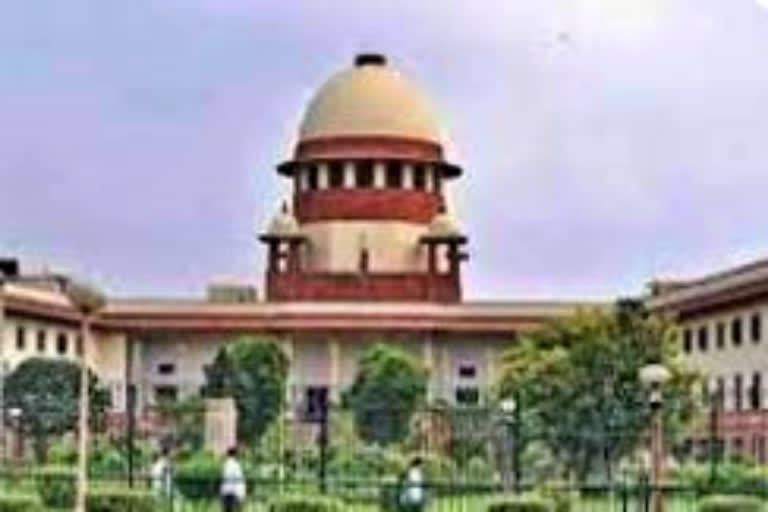New Delhi: The Supreme Court issued a notice to the Centre seeking the latter's response within three weeks regarding the ban imposed on the BBC documentary in the country. It further sought the government to produce original records pertaining to its decision on the ban of the BBC documentary relating to the Gujarat 2002 riots.
The SC listed the next hearing of the case in April. The apex court's directions came after hearing several pleas seeking its direction restraining the Central government from censoring the BBC documentary. The public interest litigations (PILs) challenged the Central government's decision on the BBC documentary titled 'India: The Modi Question'.
The BBC documentary was embroiled in the controversy as it took a critical view of the role played by Narendra Modi as the then chief minister of Gujarat at the time of riots, the petitioners said. They strongly objected to the ban on the BBC documentary in India. The Centre was asked to file a counter affidavit within three weeks.
An SC bench of Justice Sanjiv Khanna and Justice M M Sundresh heard the PILs filed by Trinamool Congress MP Mahua Moitra, activist lawyer Prashant Bhushan, noted journalist N Ram among others.
On their part, the petitioners termed the ban on the BBC documentary as "arbitrary and unconstitutional". They asserted that the citizens of the country had a right to receive information regarding the blocked documentary. One of the petitioners maintained that the media should not be curbed from exercising its fundamental right to report on the contents of the controversial 2-episode BBC documentary. Some petitioners described the ban as an attack on the freedom of speech and expression in the country.
Meanwhile, Law Minister Kiren Rijiju had accused the petitioners of wasting the precious time of the Supreme Court. Whereas, advocates appearing for the petitioners pointed out before the court that the government invoked emergency powers under the Information Technology (IT) Rules to ban the documentary.
During the hearings, the SC pointed out that people have been accessing the documentary regardless of the ban. One of the petitioners maintained that the contents of the BBC documentary are protected under Article 19(1)(a) (freedom of speech and expression) and do not fall under any of the restrictions specified in Article 19(2).
The petitioner said that the first in the BBC two-part documentary series was released on January 17, 2023 which critically appraised PM Modi's role during his stint as the Gujarat CM in 2002 when thousands lost their lives in riots. The second episode was aired on January 24. The petitioner told the court that blocking orders were issued under Rule 16 of the Information Technology (Intermediary Guidelines and Digital Media Ethics Code) Rules 2021.
Twitter India had to block all tweets with links to YouTube videos of the BBC documentary. One petitioner appealed to the apex court to examine the contents of BBC documentary. The apex court should decide whether citizens have the right under Article 19 (1) (2) to see news and reports on the 2002 Gujarat riots.
Multiple YouTube videos and Twitter posts sharing links to the controversial documentary were blocked following the government directions on January 21. The petitioners have also sought a direction to Google and Twitter to restore contents and tweets.



